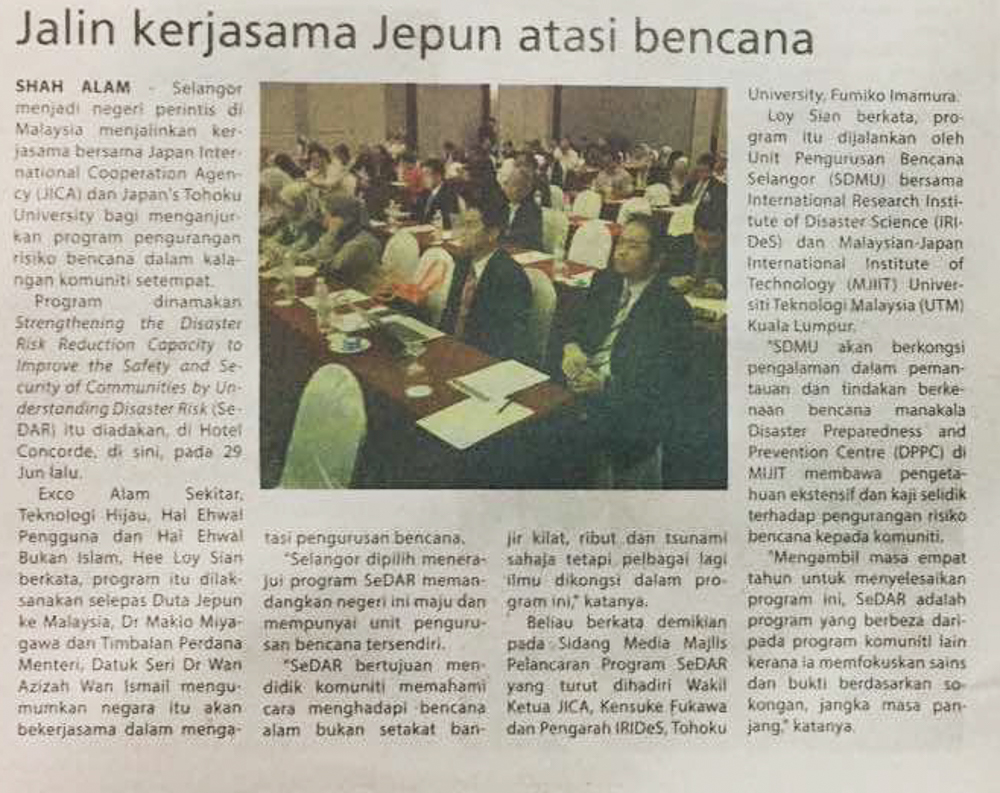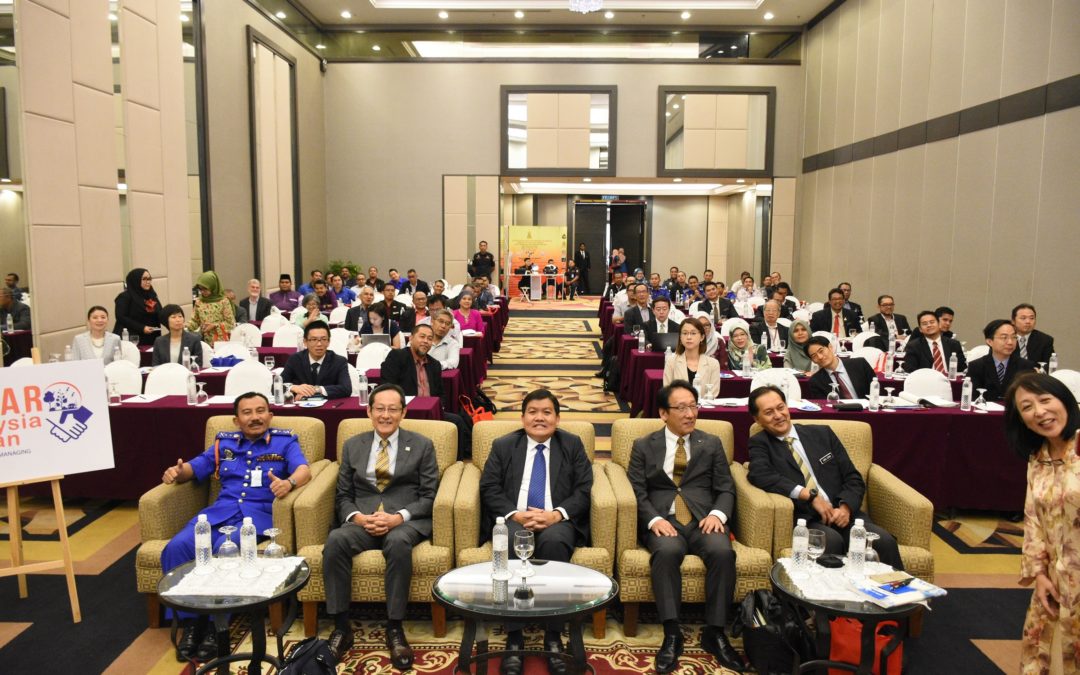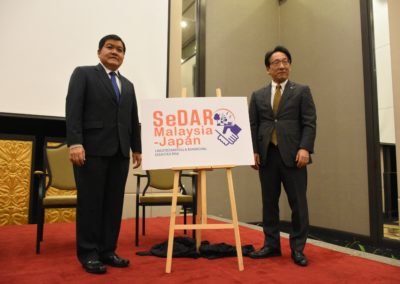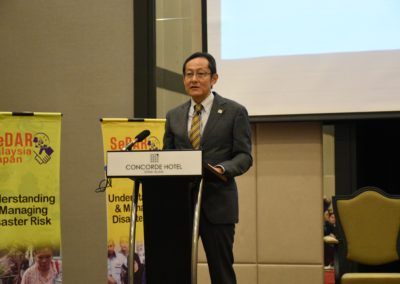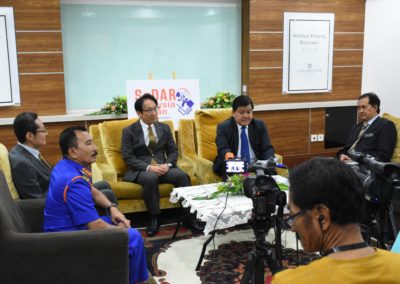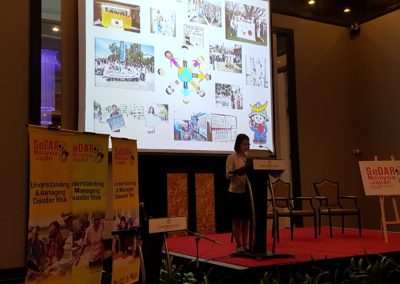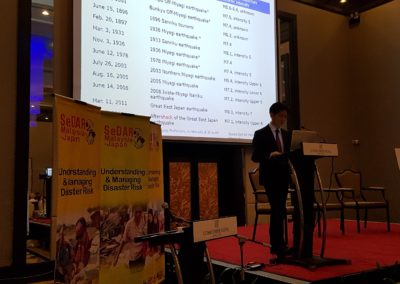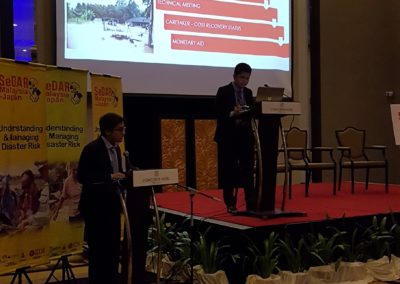On 28-29 June 2018, a series of events to launch the new project of MJIIT’s DRM program was conducted with International Research Institute of Disaster Science (IRIDeS) of Tohoku University, Selangor Disaster Management Unit (SDMU) and City of Sendai, Japan. The project, under the JICA Partnership Program (JPP), is funded by JICA and will be implemented over a period of four years.
On 28th, the delegates from Japan, headed by Professor Fumihiko Imamura, Director of IRIDeS and world-renowned tsunami scientist, made a courtesy visit to the Smart Selangor Command Centre (SSCC) in Shah Alam where Dr. Fahmi Ngah, Chief Executive Officer, Selangor Economic Advisor Deputy Program Director, Smart Selangor Delivery Unit, made a presentation on the Smart Selangor program.
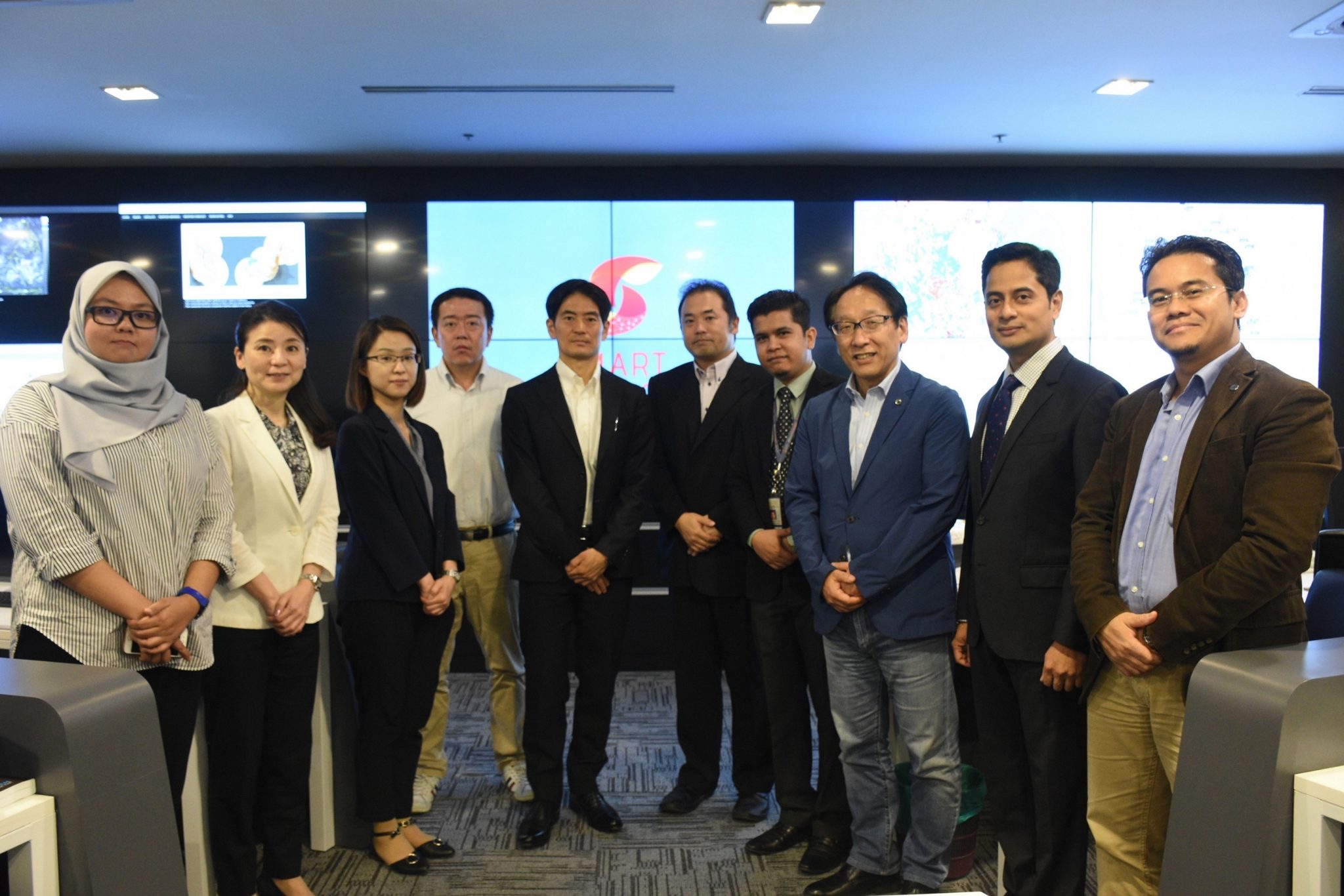
After the visit, the delegates visited the operation center of the Storm water Management And Road Tunnel (SMART Tunnel).
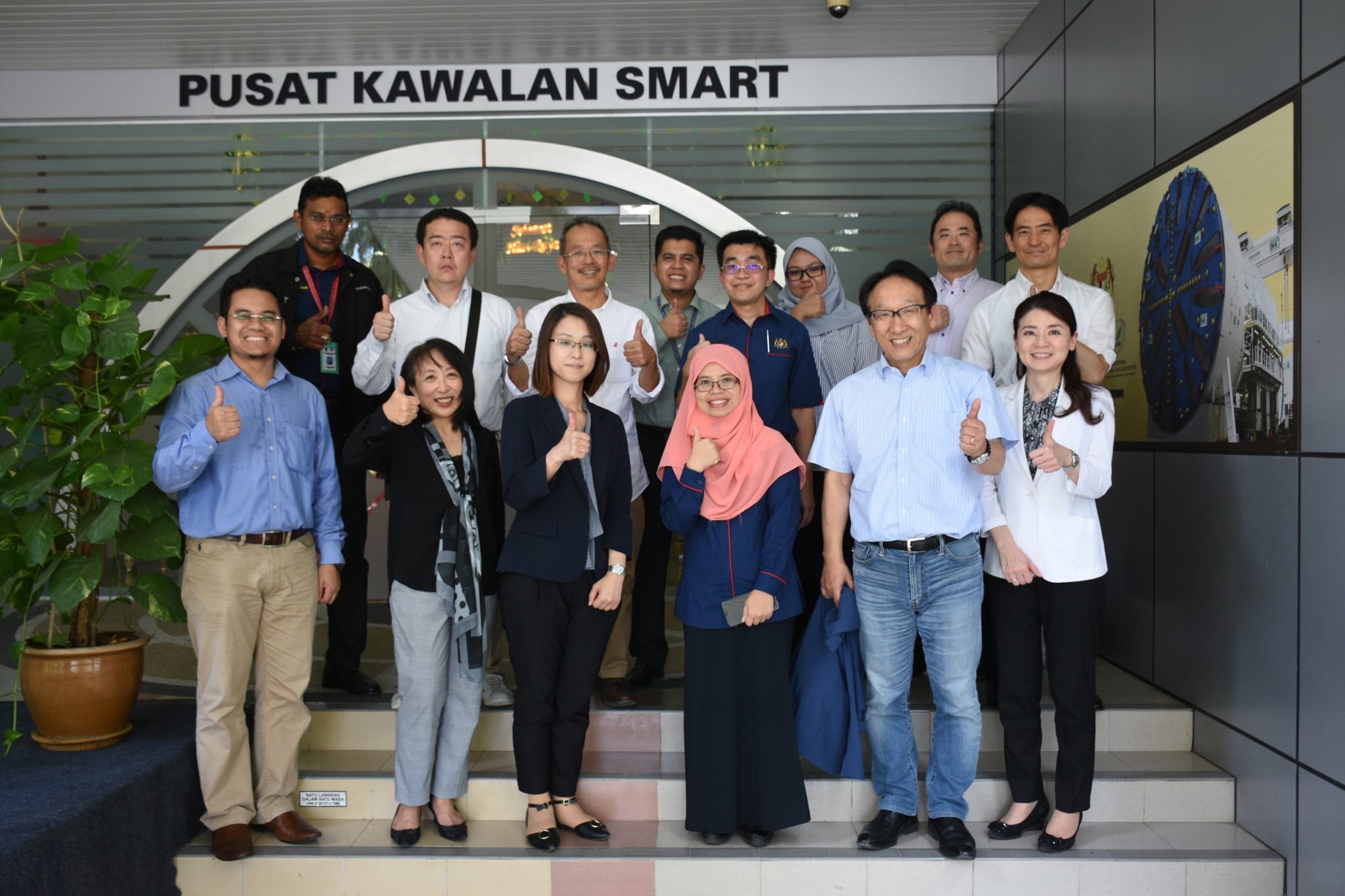
In the afternoon, a courtesy call was made to MJIIT in which the deputy deans, Assoc. Professor Dr. Shahrum Shah Abdullah and Professor Akio Makishima, received the delegation and explained about the background of MJIIT and the disaster program.
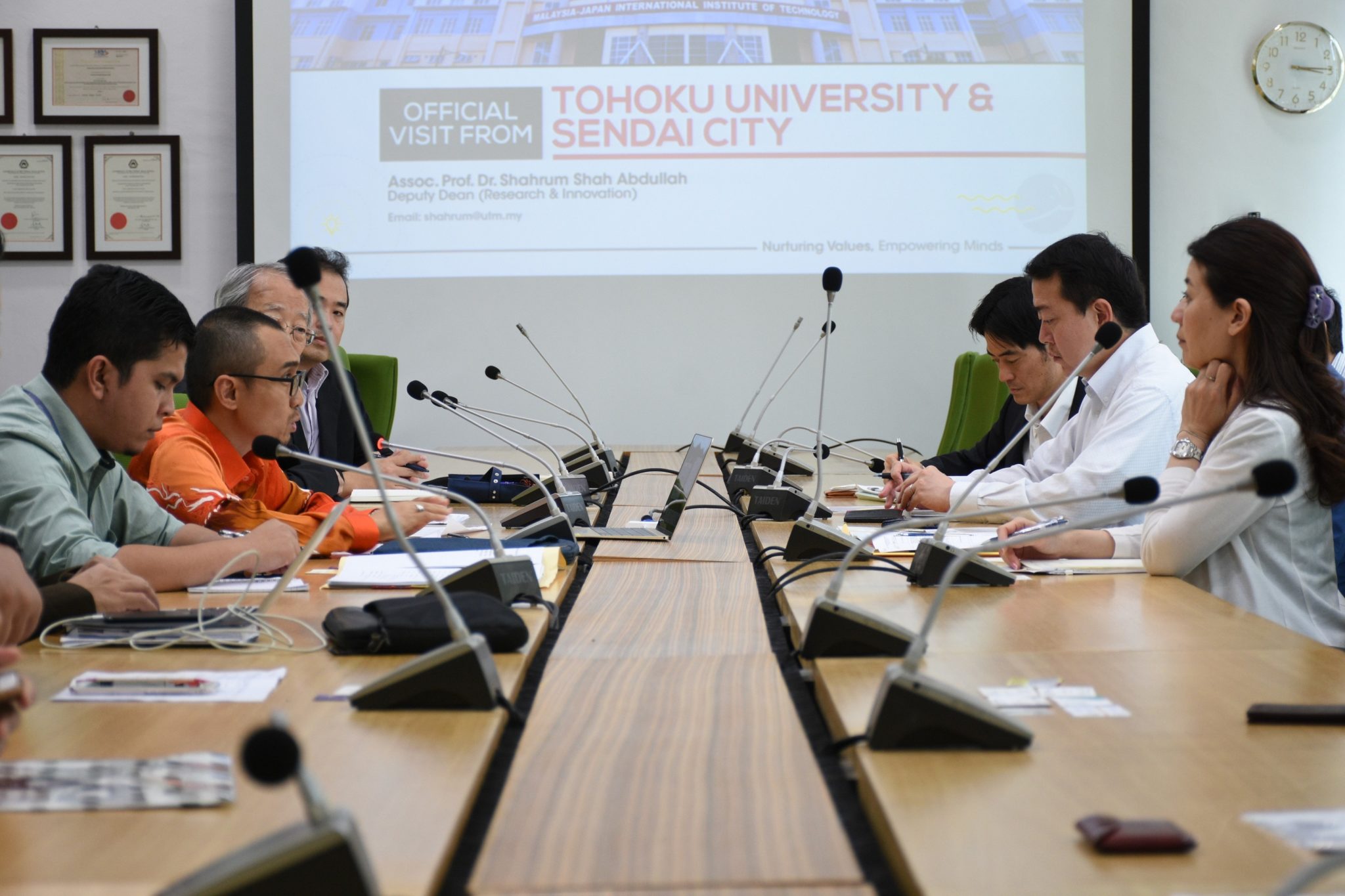
As agreed by project partners, the SeDAR project office was established at the JASTIP Joint Lab at MJIIT.
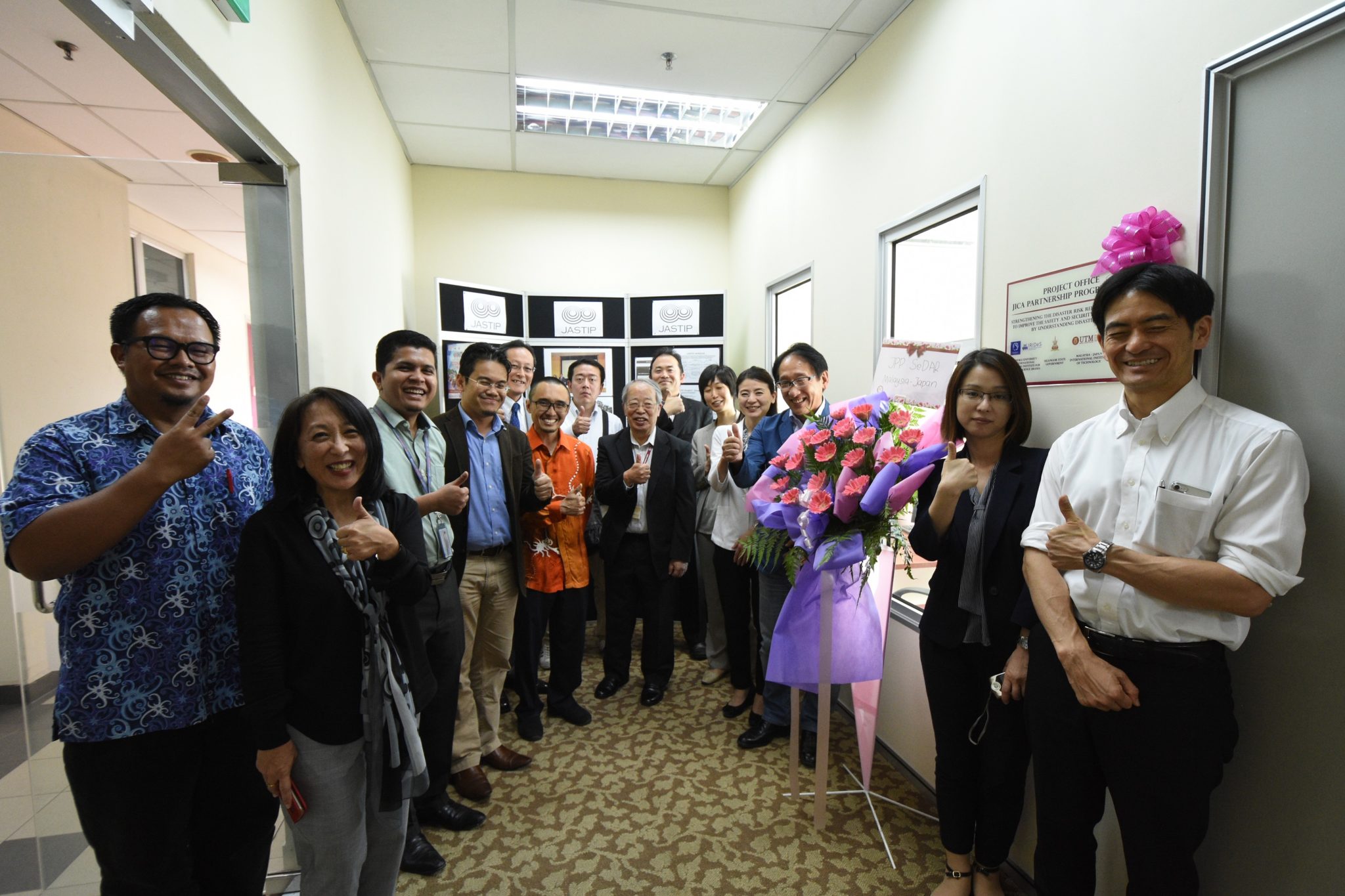
On 29th, Project Launch and Workshop of the SeDAR project was organized that gathered close to 100 participants consisting of federal and local government officials, community representatives, academicians, NGOs and media.
The event was officiated by Professor Imamura, H.E. Yang Berhormat Hee Loy Sian, Selangor Executive Committee member and Chairman of the Standing Committee for Environment, Green Technology and Public Affairs and Mr. Kensuke Fukawa, Chief Representative of JICA Malaysia.
In addition to the outline of the project, explained by Assoc. Professor Takako Izumi of IRIDeS, DRR experiences and challenges were shared between disaster managers from Malaysia and Japan.
The workshop ended early evening with technical experts sharing their expectations and inputs to implement the activities of the project.
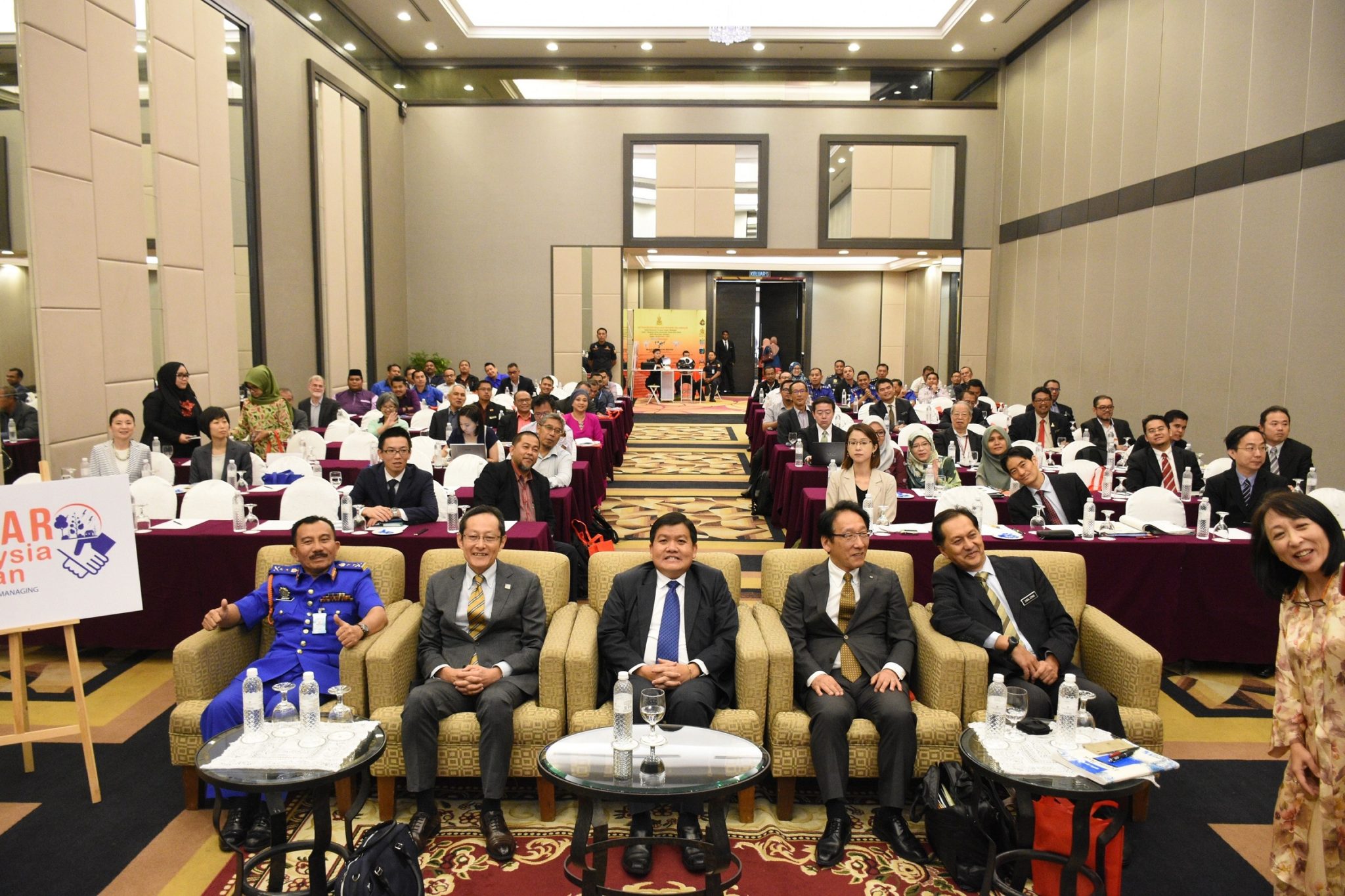
The project, “Strengthening the Disaster Risk Reduction Capacity to Improve the Safety and Security of Communities by Understanding Disaster Risks” or “SeDAR” for short, is aimed to link disaster-related scientific data and risk analysis with disaster management planning and actions on the field. It also provides local disaster managers and community leaders knowledge and skills to initiate science- and evidence-based measures that will enable first responders to take appropriate actions to prepare and respond in case of disaster events.
